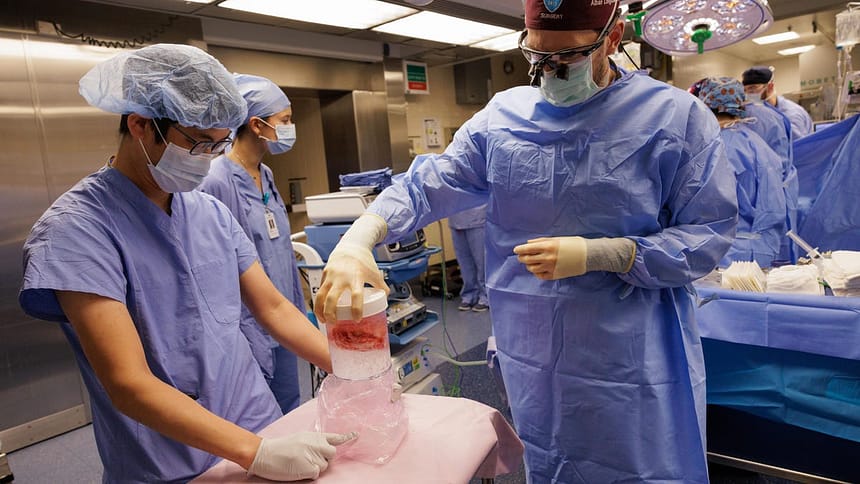Biotech company eGenesis recently announced its implanted a pig kidney into a second human patient. This animal-to-human organ transplant, or xenotransplant, was made possible through advancements in gene-editing and cloning.
With insufficient human kidneys to meet the demand for transplants, eGenesis and other companies are aiming to help close the gap with the help of CRISPR-Cas9, a gene-editing technology that won the 2020 Nobel Prize in Chemistry.
Xenotransplant surgery
By editing a pig’s genome to remove targeted sequences of pig DNA and insert specific sequences of human DNA, eGenesis says it can reduce the risk of organ rejection and cross-species infection.
“Some people have the misconception that we edit the adult animal. We don’t. We edit the cells, and then we can produce the adult animals from the cells,” says eGenesis President & CEO Mike Curtis.
Donor animals are raised in a highly controlled environment to minimize the risk of any pathogens making their way into the facility.
Curtis tells me eGenesis is planning several additional transplants this year, with the goal of culminating in a trial of about 50 patients, after which the company hopes to have enough data to make this type of procedure more widely available.
Xenotransplant recipient Tim Andrews getting discharged from the hospital.
As for Xenotransplant recipient Tim Andrews, he’s had his new kidney for about two months, and the latest word from eGenesis is that he’s doing well.
For more of our coverage on eGenesis and xenotransplants, check out the video in this article.






